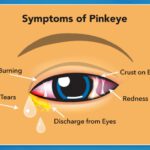Achieving short-term weight loss can be a goal for many people seeking to improve their health, boost confidence, or prepare for an event. However, it’s essential to focus on healthy, sustainable methods rather than quick fixes that may compromise long-term health. Here are some effective strategies to promote short-term weight loss while ensuring that your body stays nourished and healthy.
1. Set Realistic Goals
One of the first steps toward short-term weight loss is setting achievable and realistic goals. For short-term weight loss, a safe and healthy target is usually about 1–2 pounds (0.5–1 kg) per week. This rate ensures you’re losing fat rather than muscle or water weight, which are often the result of unhealthy crash diets.
2. Prioritize Whole, Unprocessed Foods
Consuming whole, unprocessed foods is essential for weight loss and overall health. Focus on incorporating:
- Fruits and Vegetables: These are nutrient-dense and low in calories, helping you feel full while consuming fewer calories.
- Lean Proteins: Chicken, turkey, fish, tofu, and legumes help maintain muscle mass and reduce hunger.
- Whole Grains: Foods like quinoa, oats, and brown rice provide fiber, which helps digestion and keeps you full longer.
- Healthy Fats: Incorporate sources of healthy fats like avocados, nuts, seeds, and olive oil, which support metabolism and hormone regulation.
3. Control Portion Sizes
Portion control is crucial for weight loss. Even healthy foods can contribute to weight gain if eaten in large quantities. Use smaller plates, measure your food, and avoid mindless snacking to help control calorie intake. Eating slowly and mindfully allows your body time to signal when it’s full, preventing overeating.
4. Increase Protein Intake
Protein is a key nutrient for weight loss because it helps reduce appetite, increase feelings of fullness, and preserve muscle mass while losing fat. Aim for protein-rich meals and snacks like eggs, chicken breast, beans, lentils, or Greek yogurt. Protein has a higher thermic effect, meaning your body burns more calories digesting it compared to fats and carbohydrates.
5. Stay Hydrated
Drinking enough water is essential for overall health and can aid in weight loss. Water helps:
- Boost metabolism.
- Reduce hunger when consumed before meals.
- Improve digestion.
- Replace sugary drinks, which add unnecessary calories.
Aim for 8–10 glasses of water per day, and consider consuming water-rich foods like cucumbers, lettuce, and melons to stay hydrated.
6. Incorporate Regular Exercise
Exercise plays a vital role in weight loss. Combine aerobic exercise (cardio) with strength training to burn calories and build lean muscle mass. Some effective forms of exercise for short-term weight loss include:
- High-Intensity Interval Training (HIIT): Alternating between high-intensity exercises and brief rest periods, HIIT is efficient for burning calories and boosting metabolism.
- Strength Training: Building muscle helps burn more calories even at rest, supporting long-term fat loss.
- Cardio: Activities like running, cycling, or swimming help burn calories and improve cardiovascular health.
Aim for at least 150 minutes of moderate-intensity cardio or 75 minutes of vigorous exercise per week, along with two days of strength training.
7. Get Adequate Sleep
Sleep is often overlooked in weight loss strategies, but it’s just as important as diet and exercise. Lack of sleep can:
- Increase hunger hormones (ghrelin) and decrease satiety hormones (leptin), leading to overeating.
- Lower energy levels, making it harder to stay active.
- Increase stress, which may lead to emotional eating.
Aim for 7–9 hours of sleep per night to support your weight loss efforts and maintain overall health.
8. Reduce Refined Carbohydrates and Sugars
Refined carbohydrates and sugars contribute to weight gain by causing rapid spikes in blood sugar levels, which can lead to increased hunger and overeating. To lose weight in the short term, reduce or eliminate foods like:
- Sugary snacks and drinks.
- White bread and pasta.
- Baked goods made with refined flour.
Instead, choose complex carbohydrates like sweet potatoes, whole grains, and legumes, which provide sustained energy and prevent blood sugar crashes.
9. Practice Intermittent Fasting
Intermittent fasting (IF) is an eating pattern that alternates between periods of eating and fasting. Popular methods include:
- 16/8 Method: Fasting for 16 hours and eating during an 8-hour window.
- 5:2 Method: Eating normally for five days and consuming 500–600 calories on two non-consecutive days.
IF can help reduce calorie intake and improve insulin sensitivity. However, it’s important to choose a fasting schedule that works with your lifestyle and ensure you’re still consuming nutrient-rich meals during eating windows.
10. Avoid Processed Foods
Processed foods are often high in sugar, unhealthy fats, and empty calories. To achieve short-term weight loss, minimize or eliminate processed foods such as:
- Packaged snacks (chips, crackers).
- Processed meats (sausages, hot dogs).
- Sugary cereals and drinks.
Focus on fresh, whole foods that provide the nutrients your body needs to function optimally while helping you lose weight.
11. Manage Stress
Stress can negatively impact your weight loss efforts. High levels of the stress hormone cortisol can lead to increased appetite and fat storage, especially around the abdominal area. To manage stress:
- Practice mindfulness or meditation.
- Engage in yoga or deep breathing exercises.
- Take regular breaks and prioritize self-care.
Managing stress effectively can prevent emotional eating and help you stick to your weight loss goals.
12. Track Your Progress
Keeping track of your meals, exercise, and weight loss progress can help you stay accountable and make necessary adjustments. Use apps or a journal to log your food intake, workout routines, and measurements. Tracking allows you to spot patterns and identify areas where you might need to improve.
13. Limit Alcohol Consumption
Alcohol is high in empty calories and can slow down fat metabolism. Reducing or eliminating alcohol during your weight loss period can make a significant difference. If you do choose to drink, opt for lower-calorie options like wine or spirits mixed with soda water, and limit the amount consumed.
14. Be Consistent
Consistency is key to achieving short-term weight loss. While it can be tempting to try extreme diets, sticking to healthy habits is more effective and sustainable. Make small, manageable changes to your diet and exercise routine that you can maintain over time.
Healthy Approaches to Achieve Short-Term Weight Loss
- Calorie Management: Reducing calorie intake is a common approach for quick weight loss. However, drastic reductions, such as dropping below 1250-1600 calories daily, can be unhealthy and unsustainable. Aim for a moderate deficit, around 500 calories less than your maintenance level.
- Nutrient-Rich Foods: Focus on whole, nutrient-dense foods. Reducing processed sugars, fats, and carbohydrates is beneficial. Understanding the glycemic index of foods can guide you toward better choices. Opt for low-GI foods that provide sustained energy and control hunger.
- Balanced Diet: While temporarily adopting a vegetarian diet can aid weight loss, ensure you’re getting adequate protein, vitamins, and minerals. Don’t compromise on essential nutrients for the sake of losing weight quickly.
- Hydration: Water is crucial for the body’s functions and can assist in weight loss by aiding digestion and flushing out toxins. However, extreme water manipulation for rapid weight loss can lead to dehydration and health risks.
- Exercise: Incorporating physical activity, even in a short timeframe, can aid in burning extra calories. Focus on a mix of cardio and strength training exercises for optimal results.
- Avoid Crash Dieting: Rapid weight loss plans may lead to short-term results but often result in regaining weight afterward. Sustainable lifestyle changes are more effective for long-term weight management.
Remember, healthy weight loss is gradual and sustainable. Losing weight in a week might not be realistic or safe for everyone. Prioritize your health and well-being over rapid weight loss, and consult with a healthcare professional before starting any extreme diet or exercise regimen.
Conclusion
Short-term weight loss can be achieved through a combination of healthy eating, regular exercise, and lifestyle changes. Focus on whole foods, control portion sizes, stay hydrated, and prioritize sleep to see results. Remember, quick fixes and extreme diets can be harmful, so it’s important to approach weight loss in a balanced and mindful way. By adopting these healthy practices, you’ll be able to achieve your weight loss goals while maintaining overall well-being.
FAQs
1. What is considered healthy short-term weight loss?
Healthy short-term weight loss is typically defined as losing 1-2 pounds (0.5-1 kg) per week. This rate helps ensure fat loss without negatively affecting muscle mass, hydration, or metabolism.
2. What are the best foods for short-term weight loss?
Focus on whole, nutrient-dense foods such as:
- Lean proteins (chicken, fish, tofu)
- Fruits and vegetables (berries, leafy greens, carrots)
- Whole grains (quinoa, oats, brown rice)
- Healthy fats (avocados, nuts, olive oil) These foods are low in calories but high in nutrients, keeping you full and energized while helping reduce overall calorie intake.
3. Can I achieve short-term weight loss without exercising?
Yes, but incorporating exercise accelerates the process and ensures you’re losing fat rather than muscle. A balanced approach combining healthy eating and physical activity is the most effective for both short- and long-term weight loss.
4. What types of exercises are best for short-term weight loss?
- High-Intensity Interval Training (HIIT): Burns a lot of calories in a short amount of time.
- Cardio: Running, cycling, or swimming helps to burn calories.
- Strength Training: Builds muscle, which boosts your metabolism and burns fat even at rest.
Aim for a combination of these exercises for maximum results.
5. How does drinking water help with weight loss?
Water helps with weight loss by:
- Increasing your metabolism.
- Reducing hunger when consumed before meals.
- Flushing out toxins and supporting digestion. It also helps replace high-calorie sugary beverages, reducing overall calorie intake.
6. Is intermittent fasting effective for short-term weight loss?
Yes, intermittent fasting can help you reduce calorie intake by limiting your eating window. Popular methods like the 16/8 approach, where you fast for 16 hours and eat within an 8-hour window, can help you shed weight while maintaining muscle mass.
7. Are there any unhealthy weight loss methods to avoid?
Avoid extreme diets, skipping meals, detox teas, diet pills, and cutting out entire food groups, as they can lead to nutrient deficiencies, muscle loss, and a slower metabolism. These methods are often unsustainable and can result in quick regain of weight.
8. How much sleep do I need to support short-term weight loss?
Aim for 7-9 hours of sleep per night. Lack of sleep can increase hunger hormones and cravings for unhealthy foods, making it harder to stick to a healthy eating plan and lose weight.
9. Can reducing carbohydrates help with short-term weight loss?
Reducing refined carbohydrates (white bread, pastries, sugary drinks) can help with short-term weight loss by stabilizing blood sugar and reducing calorie intake. Instead, opt for complex carbs like whole grains and vegetables for sustained energy and fewer cravings.
10. How can I manage stress while trying to lose weight?
Stress can lead to emotional eating and cravings for unhealthy foods. To manage stress:
- Practice mindfulness or meditation.
- Engage in regular physical activity like yoga or walking.
- Make time for relaxation and hobbies.
Managing stress effectively can support your weight loss efforts and overall health.
11. Is it safe to lose more than 2 pounds per week?
Losing more than 2 pounds per week is generally not recommended as it may lead to muscle loss, nutritional deficiencies, and a slower metabolism. Rapid weight loss is often unsustainable and may cause health complications.
12. How can I track my short-term weight loss progress?
Track your progress by:
- Measuring your weight and body measurements.
- Keeping a food diary or using a nutrition app.
- Logging your workouts and physical activity. This helps you stay motivated and identify areas where you might need to adjust your habits.
13. Can I enjoy treats and still lose weight in the short term?
Yes, moderation is key. You can still enjoy occasional treats while staying within your calorie limits. The 80/20 rule, where you eat healthy 80% of the time and indulge 20% of the time, can help you stay on track without feeling deprived.
14. How important is portion control for short-term weight loss?
Portion control is crucial. Even healthy foods can contribute to weight gain if eaten in large quantities. Use smaller plates, measure servings, and avoid eating in front of the TV to stay mindful of portion sizes.
15. How does protein help with short-term weight loss?
Protein helps in weight loss by:
- Reducing hunger and cravings.
- Increasing feelings of fullness.
- Supporting muscle maintenance while losing fat. Including protein-rich foods like eggs, fish, and legumes in your meals helps sustain energy and prevent overeating.
16. What should I avoid when aiming for short-term weight loss?
Avoid:
- Sugary drinks (soda, sweetened teas)
- Processed foods (chips, cookies)
- High-calorie fast foods
- Alcohol (which can add empty calories) These foods and drinks can hinder your progress by adding excess calories and leading to blood sugar imbalances.
17. How long will it take to see results from healthy short-term weight loss methods?
You may start noticing changes within 1–2 weeks, such as reduced bloating, increased energy, and slight weight loss. Visible changes in body composition may take a few more weeks, depending on your consistency with diet and exercise.
18. How do I stay motivated during a short-term weight loss journey?
To stay motivated:
- Set small, achievable goals.
- Track your progress regularly.
- Reward yourself (non-food-related) when you reach milestones.
- Find a workout buddy or join a community to stay accountable.
19. Will short-term weight loss lead to long-term results?
Short-term weight loss can serve as a stepping stone toward long-term health goals. By adopting healthy habits and avoiding extreme measures, you can build a foundation for sustainable weight maintenance.
20. Can I lose weight quickly for an event?
While it’s possible to lose weight quickly for an event, focus on safe, healthy methods like reducing calorie intake, exercising regularly, and staying hydrated. Avoid crash diets, as they often result in rebound weight gain after the event.



